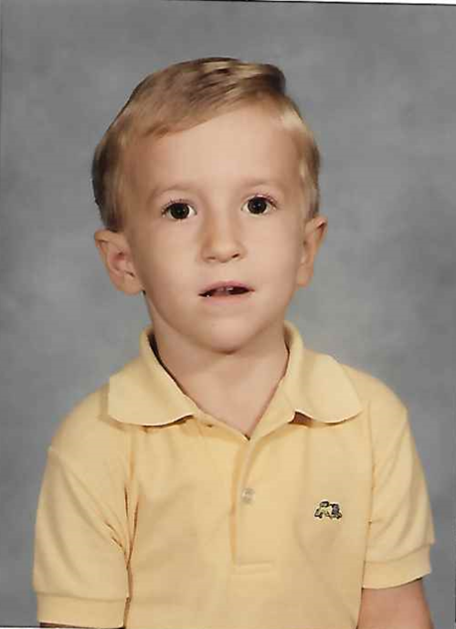Talking to people can be hard if you stutter. I sometimes get stuck on certain words or sounds. It would cause me to feel tense or uncomfortable. Sometimes I would even change words to avoid stuttering when talking to others. My problem early on was with repetitions of words. Certain words may get repeated like cookie might come out sometimes as co-co-co-cookie. Stuttering would change for me from day to day. I couldn’t pinpoint what words or situations caused me to be fluent one minute like the normal kids in my class, and other times when I would stutter.
“Matt Warren?” The lady said as she peaked her head into my second-grade class.
“Yes?” I replied.
“Come with me please.” She said. Who was this lady and why am I being singled out?
I remember having been pulled out of class in elementary school around 6 or 7 years old to see a speech therapist because she said it seemed like my brain was moving and thinking faster than the words could get it out of my mouth. She said that stress or excitement can lead to more stuttering. It caused my body to get tense and struggle to talk sometimes, let alone to speak in front of the class…I wanted to hide my stuttering from others SO BAD.

It was such an embarrassment even without others making fun of me for it. People would sometimes turn away when I started to stutter, avoiding eye contact. Many times, they would try to complete the words or phrases for me when I was a child. When people would focus on the stutter and use phrases such as “slow down” or “take your time,” it would make me feel so self-conscious growing up. But when they would pick on me, I just wanted to crawl in a corner or shut down and not say another word.
‘Stuttering is a speech disorder involving frequent problems with normal fluency and flow of speech’, according to the Mayo Clinic. I stuttered all the time and she helped me with tricks to slow down my brain. I still find myself repeating her words in my head before I speak to a group or read something out load. “Just slow down your words and let your mouth keep up.”
The American Speech-Language-Hearing Association (ASHA) has treatment focusing on managing stuttering for both children and adults. ‘Stuttering affects more than 70 million people worldwide, including 3 million people in the United States,’ according to Medical News Today.
I have learned to read aloud at a slow pace when I am on my own and when I have mastered this, I use this pace when speaking to others. Another tip that I try to use is a brief pause between phrases and sentences to help slow down my speech. Adding mindfulness meditation to a treatment program for stuttering may be beneficial for some people. I sure has helped me. ‘Mindfulness is a proven way to reduce anxiety and stress. Research suggest that there is an overlap between the effects of mindfulness and the tools necessary for stuttering management including: decreased use of avoidance strategies, such as speaking less, improved emotional control and acceptance’. (medicalnewstoday.com)

Stuttering usually starts between 2 and 6 years old. There is no one cause of stuttering. Possible causes include the following: 1) Family history. Many people who stutter have a family member who also stutters. (well, I have looked around and I don’t see anyone who has this problem) 2) Brain differences. People who stutter may have small differences in the way the brain works during speech. Being excited or feeling rushed can make me stutter more. This makes sense to me. My brain is different than others. I feel like my brain goes a million miles an hour compared to other “normal people.”
(60 min story) During this time, dad invites us over to the office to watch a VHS video. He was recorded an airing on national television as a forensic engineer to investigate where multiple kids suffocating because recliners had to large of a gap between the leg rest and the base of the chair where it hits up under the leg. I heard him speak and he was able talk so freely. Not stuttering one time! I wanted to be able to talk like that.
I will stutter more if other people tense me or bring attention to my speech. It really embarrasses me and make me feel anxious about talking sometimes. On the asha.org website, they say that some life events may “trigger” stuttering. For example, a young child may start to stutter when he learns a lot of new words fast. He may be able to say one or two words fluently. But he may stutter when he uses longer sentences.
I am grateful that my parents got me help when I was a young child. The early help in elementary school reduced my chances that I would forever stutter all the time. I would get so upset when I would stutter, mainly inside. Many times, I would try to “fix” my speech or start the sentence over to avoid a certain word that I was struggling with or I would just stop talking all together. I think this influenced how well I did in school starting at an early age. That main take away from elementary school speech therapist was to slow down my rate of speech.

